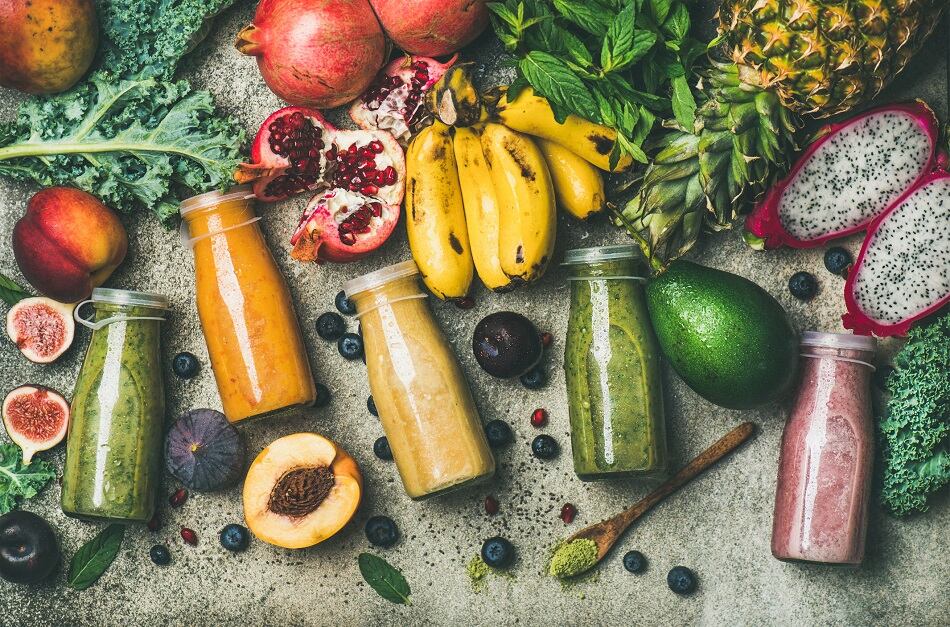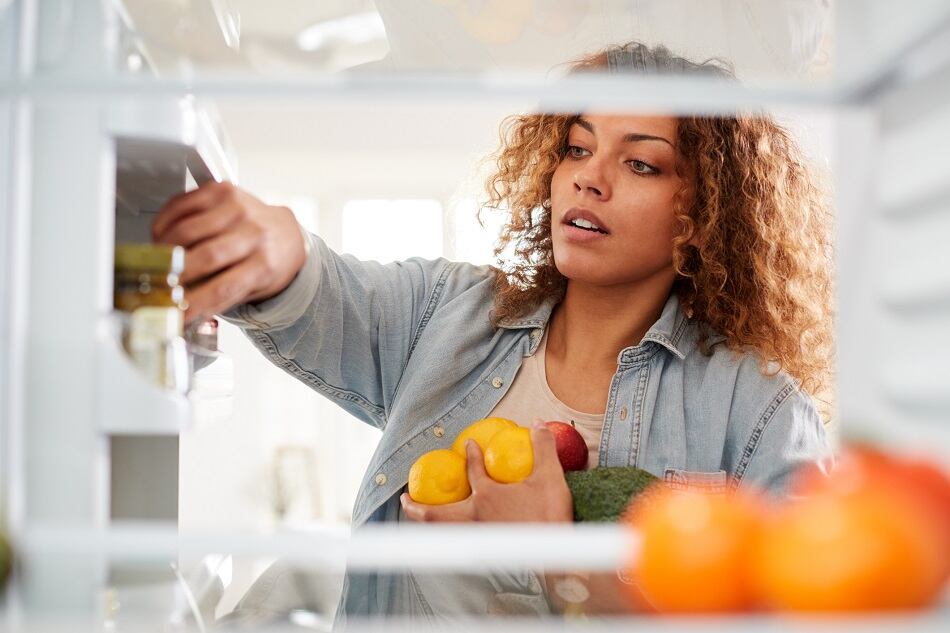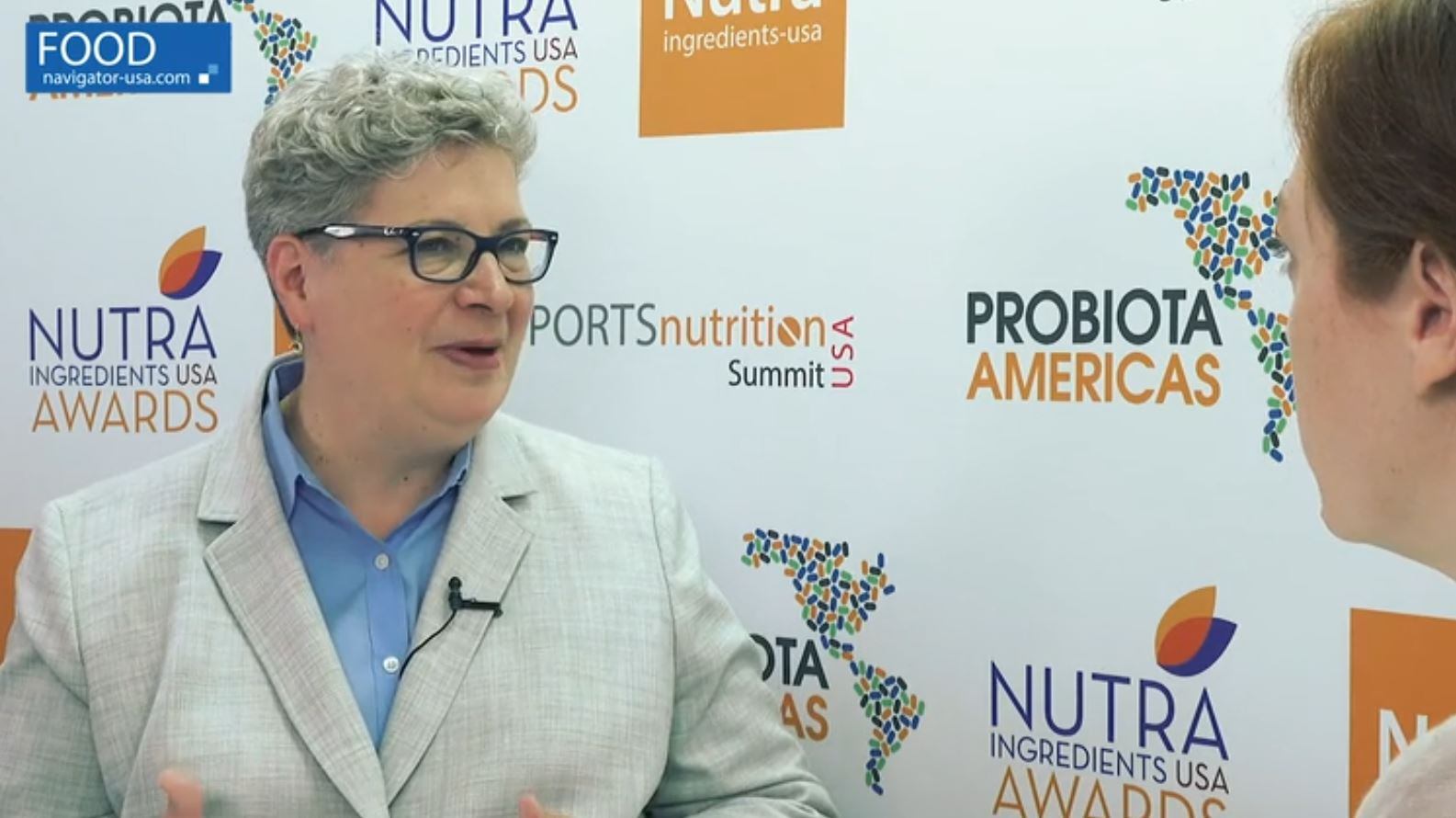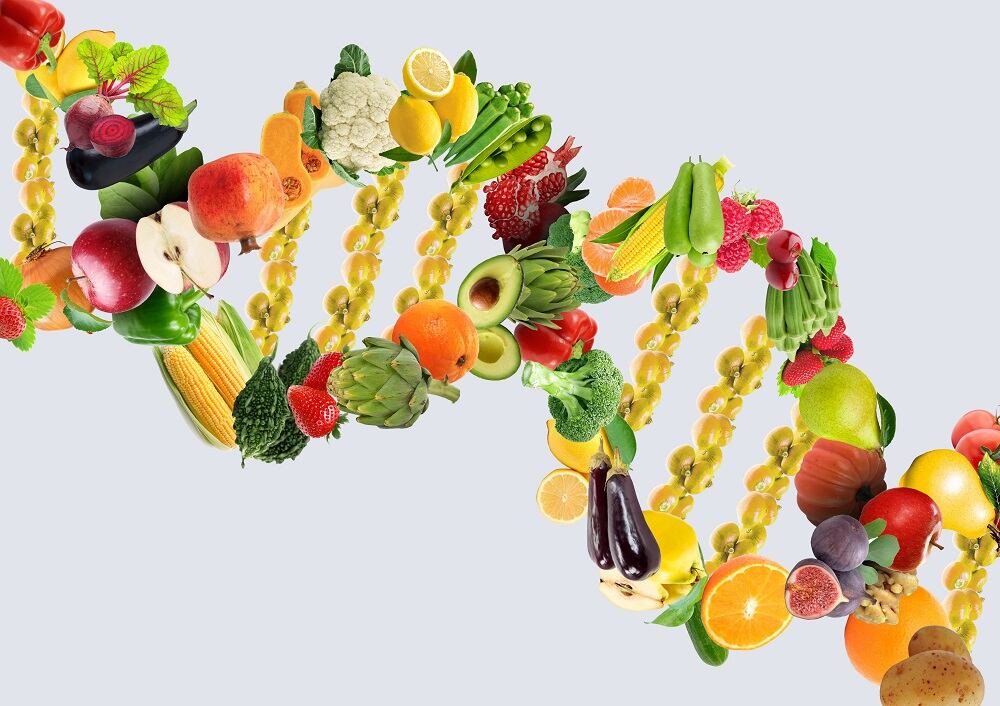Holistic wellness
Demand for beverages that support physical and emotional health will continue to be a catalyst for innovation in the New Year, according to Imbibe.
'Flavors that trigger pleasant feelings of nostalgia'
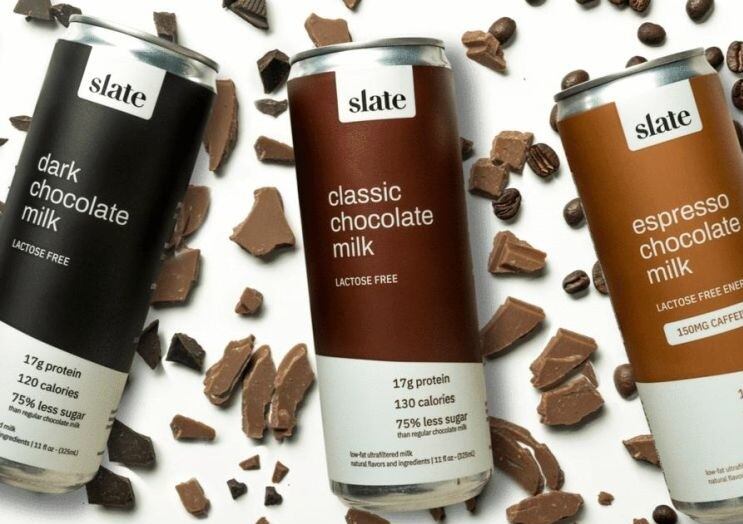
New brand Slate makes shelf-stable, lactose-free chocolate milk targeting the adult consumer.
"Expect brands to 'go back to the basics' by incorporating essential nutrients such as vitamins, minerals, omega-3 fatty acids, and protein into functional beverages. Natural flavors from superfruits, vegetables and herbs as well as flavors that trigger pleasant feelings of nostalgia like s’mores, birthday cake, and creamsicle will be widely represented in better-for-you beverages across categories," said Imbibe.
Mood-boosting and stress-relieving beverages enhanced with novel ingredients like adaptogens and cannabidiol (CBD) will be in the spotlight as well. Popular flavors will include botanicals like lavender, rose, and chamomile as well as indulgent flavors that mask off-notes common with these ingredients like variations of chocolate and vanilla.
Hyper-personalization
"Consumers have easy access to information online and can gather personal health data through technologies like FitBit and at-home wellness tests. As a result, consumers are frequently adapting their diet and choosing products that help them achieve personal lifestyle goals. In order to fulfill varying consumer demands, brands will offer more options than ever through functional beverages that address specific need states like energy, cognitive performance, gut health and beauty," said Imbibe.
Sweet options
Sugar reduction or replacement will remain a top priority for beverage manufacturers, Imbibe noted.
"Because sweetener preferences and taste expectations are a moving target brands will appeal to diverse consumer needs by introducing products with multiple sweetener options such as zero sugar, low sugar, and full sugar. Brands will also innovate with stevia, monk fruit, and allulose for products that use non-nutritive sweeteners. Honey, agave, dates, and inulin will be top ingredients used as sugar alternatives in products that use nutritive sweeteners."
Hybrid functional beverages
"The next generation of functional beverages will include ingredient combinations that address multiple need states or several harmonizing ingredients that help consumers fulfill a specific goal," noted Imbibe.
Next-level functional beverages take center stage
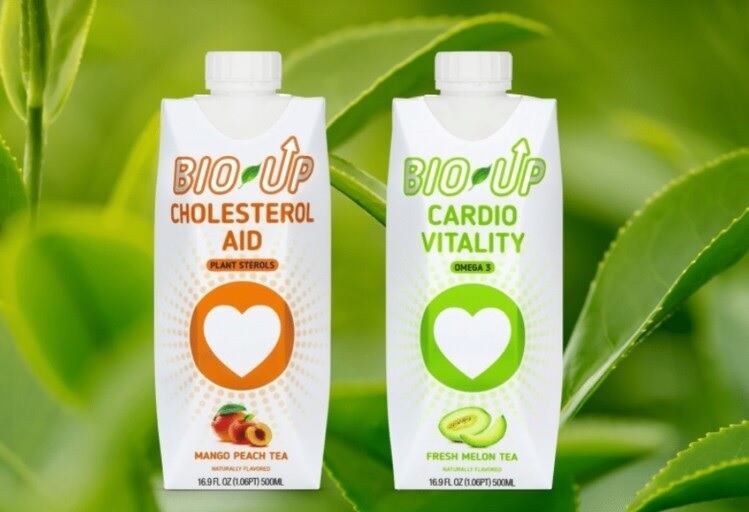
Biotechnology Bio-Up Mimetic Technologies launched two RTD teas that use a proprietary liposomal delivery system combined with added nutrients including plant sterols and Omega-3 fatty acids to deliver heart health benefits.
According to Imbibe, the most common hybrid beverage launches will be energy drinks enhanced with popular sports nutrition ingredients, symbiotic beverages (combining probiotics and prebiotics), enhanced RTD coffee, and functional beverages across categories with CBD added to amplify a product’s other health benefits.
Green rush
Despite complicated regulations and FDA warnings, the cannabidiol (CBD) market will continue to thrive, according to Imbibe.
"CBD is risqué in nature because it comes from the cannabis plant and is federally illegal as a food additive and in supplements. However, CBD is naturally occurring in hemp oil and hemp extract which are legal under the Farm Bill. Hemp oil, hemp extract, and broad-spectrum hemp extract will be the most common ingredients used in CBD beverages (though many brands are choosing not to call out CBD content because of FDA warnings)."
CBD sparkling water, the next big category?
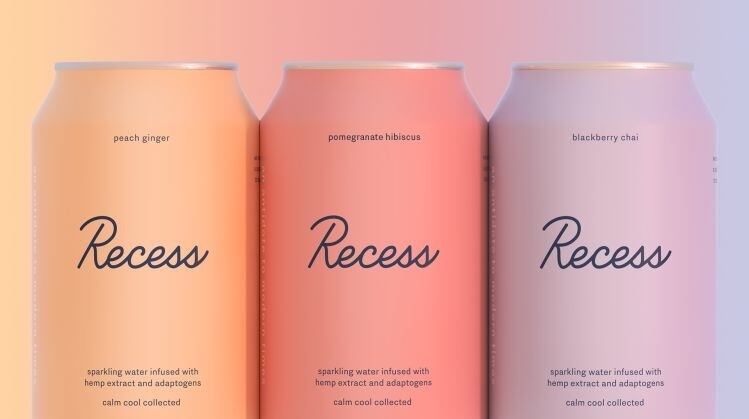
Several CBD beverage brands such as Day One, Recess, Sweet Reason, and Weller have CBD-infused sparkling water products into the market. Although packaging label claims differ from brand to brand with some calling out CBD while others use the terminology 'full spectrum hemp extract'.
Sustainability
Reducing waste and environmental degradation is a significant concern for consumers, noted Imbibe.
Brands will improve efforts to create a circular economy by launching products that use upcycled and locally sourced ingredients, compostable packaging, less packaging material overall, and strawless lids. Brands will also continue to add plant-based beverages to their product portfolio because they are perceived as more sustainable than animal products. Nielsen reported 39-percent of Americans are trying to consume more plant-based products even though 90-percent of consumers are not vegan or vegetarian according to NPD. Dairy alternatives will dominate growth in the plant-based beverage category and oat milk will be the rising star.
Sense of adventure
Consumers will seek out adventurous sensory experiences delivered through exotic flavors, bright colors and unique textures. Global flavors from Latin America and Asia like guava, blood orange, yuzu, chili, cayenne and cardamom will be popular in beverages across categories. Ingredients with bold colors like blue majik (derived from spirulina), turmeric, beet, matcha, and butterfly pea flower will be used to create visually appealing beverages. Creamy textures from nitrogen-infusions and whipped ingredients will continue to proliferate. Beverages with chewable ingredients like boba and basil seeds will also become more prevalent, said Imbibe.
Convenience
"Consumers have become accustomed to getting instant gratification with the touch of a button which has resulted in purchases motivated by convenience and value delivery as opposed to brand loyalty. Launches of ready-to-drink beverages and wellness shots will increase to satisfy the grab-and-go culture.Brands will also make it easier than ever to obtain a product that addresses a need state or dietary parameter by offering several options," said Imbibe.
In an effort to deliver a convenient gut health boost to consumers, emerging cottage cheese brand Good Culture recently launched its probiotic gut shots made with cultured kefir and featuring several on-trend ingredients such as matcha, turmeric, chaga, and collagen.
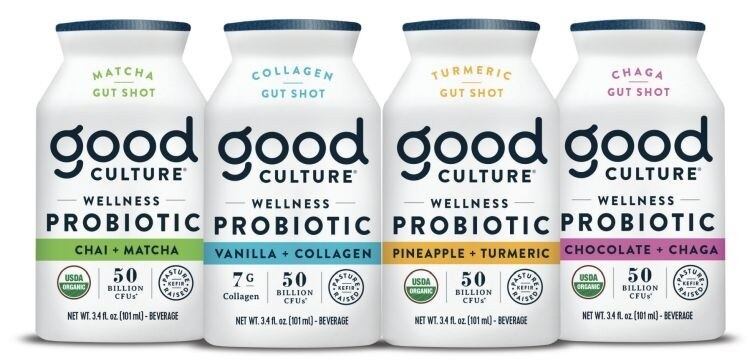
Affordable luxury
"Consumer purchases are more spontaneous than ever, but they are willing to pay more for products that taste good and fulfill a need in-the-moment," said Imbibe.
"Premiumization has played an important role in communicating value and justifying a higher price tag so there will continue to be a place in the market for luxury items. However, there is a potential recession looming so brands will also need to introduce products that are affordable and meet the taste, quality and functional expectations of consumers. Affordability will be especially important for everyday products like coffee, tea and juice since there are a plethora of options available to consumers."
Better-for-you bar
The health and wellness trend will significantly impact the alcohol category and more brands will introduce libations with low or no alcohol and functional ingredients.
"Health-conscious millennials who are 'sober curious' will drive proliferation of high-end mocktails. Beers and cocktails enhanced with functional ingredients like turmeric, blue majik, and coconut water as well as hard kombucha will appear on more menus and start to appear on grocery shelves nationwide. Hard seltzer will also continue experiencing rapid growth and more brands will enter the category," said Imbibe.

